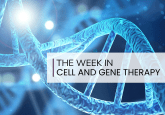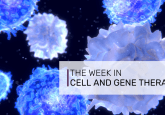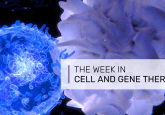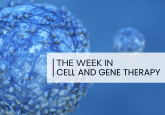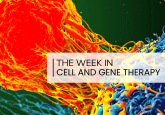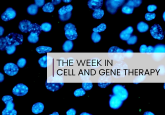Cell therapy weekly: Promising preliminary data from natural killer cell therapy trial
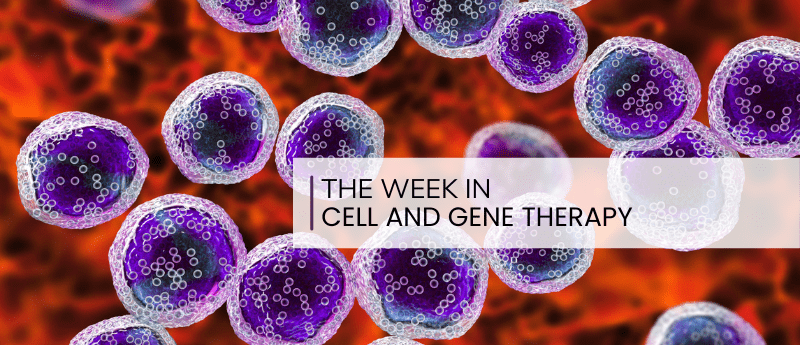
This week: Promising preliminary data has been released from a Phase I study investigating a natural killer cell therapy, an exclusive collaboration and licensing agreement has been signed to develop a gene therapy for inherited retinal disease and a Phase III trial evaluating Alofisel for treating complex Crohn’s Perianal Fistulas did not achieve its primary endpoint.
The news highlights:
- Promising preliminary data from natural killer cell therapy trial
- Collaboration aims to develop gene therapy for inherited retinal disease
- Takeda’s Alofisel study misses primary endpoint for complex Crohn’s Perianal Fistulas
Promising preliminary data from natural killer cell therapy trial
Gamida Cell (MA, USA) has announced preliminary data from its Phase I study of GDA-201, a natural killer (NK) cell therapy candidate. The study is designed to evaluate the safety of GDA-201 and determine the maximum tolerated dose in 10 patients with CD20-positive non-Hodgkin lymphoma.
Initial findings indicated a significant reduction in target lesions for five patients. Evaluation of effectiveness revealed that two patients achieved a complete response, two showed a partial response, and one exhibited stable disease. Among the 10 patients who received GDA-201 at doses up to 1×108 cells/kg in combination with rituximab, no dose-limiting toxicities were reported.
“We have demonstrated that our nicotinamide (NAM)-modified NK cells have enhanced metabolic fitness, resistance to oxidative stress and potent cytotoxicity, meaning that GDA-201 has the potential for powerful anti-tumor activity,” said Ronit Simantov, Chief Medical and Scientific Officer of Gamida Cell. “We are encouraged by the safety and activity observed thus far in our Phase 1 study of cryopreserved GDA-201, which is consistent with results from the Phase 1 study of a fresh formulation of GDA-201 conducted at the University of Minnesota. We look forward to continuing to follow these patients and completing enrollment in our next cohort and anticipate sharing the full Phase I data in early 2024.”
Collaboration aims to develop gene therapy for inherited retinal disease
SpliceBio (Barcelona, Spain) has entered an exclusive collaboration and licensing agreement with Spark Therapeutics (PA, USA), a subsidiary of Roche (Basel, Switzerland). The partnership will utilize SpliceBio’s proprietary Protein Splicing platform to develop a gene therapy for an undisclosed inherited retinal disease. Spark will hold exclusive global rights for developing, manufacturing and commercializing the gene therapy, with SpliceBio eligible to receive payments of up to $216 million, including upfront, opt-in and milestone payments, as well as royalties on net sales. The collaboration aims to address diseases that are currently untreatable with gene therapies due to the size of the required gene.
“This partnership builds on Spark’s leadership in gene therapies for inherited retinal diseases. Our breakthrough gene therapy LUXTURNA® demonstrated how we can change the lives of patients with biallelic mutations in the RPE65 gene whose physicians have determined their eligibility for treatment. At the same time, there are many more people with other inherited retinal diseases that need treatment options,” said Federico Mingozzi, Chief Science and Technology Officer of Spark Therapeutics. “With our complementary capabilities, combined deep technical knowledge and SpliceBio’s impressive protein splicing platform, we hope to make further progress in the treatment of inherited retinal diseases, bringing new gene therapies into the clinic and to commercial availability.”
Takeda’s Alofisel study misses primary endpoint for complex Crohn’s Perianal Fistulas
Takeda (Tokyo, Japan) has reported that its Phase III ADMIRE-CD II study, evaluating Alofisel (darvadstrocel) for treating complex Crohn’s Perianal Fistulas, did not achieve the primary endpoint of combined remission at 24 weeks. The safety profile of darvadstrocel remained consistent with prior studies, with no new safety concerns. Detailed study results will be disclosed at a future medical meeting or in a peer-reviewed journal.
Alofisel contains expanded allogeneic mesenchymal stem cells derived from adipose tissue and is currently approved in several countries based on positive data from previous studies. This treatment is notable for being the first allogeneic stem cell therapy to receive centralized marketing authorization approval in the European Union and the first approved therapy in Japan that uses expanded human allogeneic adipose-derived mesenchymal stem cells.
“While we are disappointed with this outcome, we recognize that medical research for difficult-to-treat conditions such as complex [Crohn’s Perianal Fistulas] remains challenging,” said Chinwe Ukomadu, head of the GI and Inflammation Therapeutic Area Unit at Takeda. “We believe there are valuable lessons to learn from ADMIRE-CD II and are grateful to the patients and investigators who made this important research possible.”
